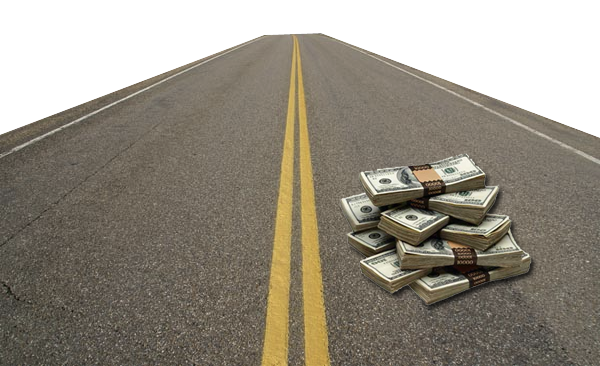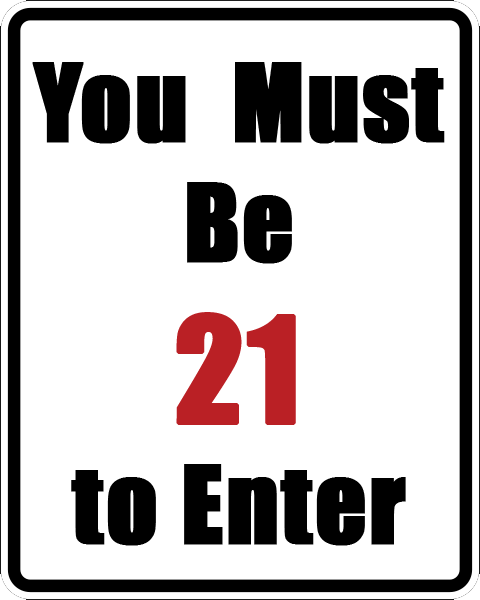 the age at which a person could vote, drink, and become a knight. During the Vietnam War, 29 out of 50 states opted to lower their drinking ages to 18,19,or 20 to match the newly lowered voting age of 18. After several protests were staged, Congress decided to lower the voting age so that those eligible for the draft (at 18) could also vote in elections. This was due to the fact that it was felt that it was unfair for the government to draft someone who hasn't had any opportunities to vote on any of the laws or for the people who were sending them off to war. Some of the states that lowered the drinking age also had more then one drinking age determined by what type of alcohol or alcohol percentage. This is where 3.2% beer originated. The problem with having varying minimum drinking ages in the country was that kids were driving to states that it was legal for them to drink in to get alcohol. The borders to these lower minimum drinking age states became known as "blood borders" because after drinking many of the youngsters would attempt to drive back to their home state resulting in many deaths/injuries.
the age at which a person could vote, drink, and become a knight. During the Vietnam War, 29 out of 50 states opted to lower their drinking ages to 18,19,or 20 to match the newly lowered voting age of 18. After several protests were staged, Congress decided to lower the voting age so that those eligible for the draft (at 18) could also vote in elections. This was due to the fact that it was felt that it was unfair for the government to draft someone who hasn't had any opportunities to vote on any of the laws or for the people who were sending them off to war. Some of the states that lowered the drinking age also had more then one drinking age determined by what type of alcohol or alcohol percentage. This is where 3.2% beer originated. The problem with having varying minimum drinking ages in the country was that kids were driving to states that it was legal for them to drink in to get alcohol. The borders to these lower minimum drinking age states became known as "blood borders" because after drinking many of the youngsters would attempt to drive back to their home state resulting in many deaths/injuries. In 1984, the United States Congress and President Ronald Reagan passed the National Minimum Drinking Age Act. Reagan was originally planning to veto the act because of his concerns about infringing on the state's rights to govern their own alcohol laws but he later changed his stance.
 This act required all states to raise their drinking age to 21 within 5 years or they would face a decrease in their federal aid for highways. South Dakota was the last state to adopt the minimum drinking age of 21, it's drinking age at the time was 19. A 19 year-old could only purchase 3.2% beers, then at age 21, they were able to purchase liquor and wine. The only exception to the National Minimum Drinking Age Act is the US Territory of Puerto Rico where the drinking age is 18. Louisiana also had a built in loop hole in their minimum drinking age law that allowed for minors to be served up until 1994.
This act required all states to raise their drinking age to 21 within 5 years or they would face a decrease in their federal aid for highways. South Dakota was the last state to adopt the minimum drinking age of 21, it's drinking age at the time was 19. A 19 year-old could only purchase 3.2% beers, then at age 21, they were able to purchase liquor and wine. The only exception to the National Minimum Drinking Age Act is the US Territory of Puerto Rico where the drinking age is 18. Louisiana also had a built in loop hole in their minimum drinking age law that allowed for minors to be served up until 1994.In South Dakota vs. Dole, the state argued that the law violated the state's right to govern itself in the 10th Amendment, the Taxing and Spending Clause, and the 21st Amendment of the Constitution. The 21st Amendment lifted prohibition and regulates how state and federal governments govern alcohol laws, with the responsibility resting mainly on the state. Secretary of Transportation Elizabeth Dole was the defendant in the case because her office was responsible for enforcing the legislation. The Supreme Court, in a 7-2 decision authored by Chief Justice William Rehnquist, ruled that Congress had engaged in a valid exercise of its power under the Taxing and Spending Clause, and did not violate the 21st Amendment. He also stated that the Tenth Amendment bars federal regulation of the States, and it has been suggested that the Twenty-First Amendment might prohibit federal regulation of the drinking age. The Supreme Court pointed out that the Congressional condition of highway funds was merely to pressure the State to comply, not a requirement to do so, because the State's failure to meet the condition deprives it of only 5% of the highway funds it may obtain.
Since its passing in 1984, the National Minimum Drinking Age Act saves an estimated 900 lives a
 year and is revered by some as the most effective public safety law ever passed. The law also promotes a healthy body because the brain is not fully developed until a person is in their early twenties (reasoning/maturity develops about age 24). Underage bodies do not process alcohol as effectively as those who are older, thus preventing drinking until a person is in 21 helps to prevent damage to the developing mind and body. The National Minimum Drinking Age Act also is one of the Nation's most examined laws. The main purpose of this law is to save lives. One of the negative effects of the law surrounds colleges and universities where half of the student population is of age while the other half is underage. While raising the drinking age remedied this problem in high schools, in colleges where half of the students can legally purchase alcohol, it is relatively easy for those under age to gain possession of alcohol. College students comprise a large percentage of underage drinking violations. Many school officials propose changing the drinking age back to 18 to prevent this imbalance on campuses. One possible change to the Act suggested by a few states is to allow those in military service to be able to drink at age 18, while other states wish to change the laws to what you can buy at 18.
year and is revered by some as the most effective public safety law ever passed. The law also promotes a healthy body because the brain is not fully developed until a person is in their early twenties (reasoning/maturity develops about age 24). Underage bodies do not process alcohol as effectively as those who are older, thus preventing drinking until a person is in 21 helps to prevent damage to the developing mind and body. The National Minimum Drinking Age Act also is one of the Nation's most examined laws. The main purpose of this law is to save lives. One of the negative effects of the law surrounds colleges and universities where half of the student population is of age while the other half is underage. While raising the drinking age remedied this problem in high schools, in colleges where half of the students can legally purchase alcohol, it is relatively easy for those under age to gain possession of alcohol. College students comprise a large percentage of underage drinking violations. Many school officials propose changing the drinking age back to 18 to prevent this imbalance on campuses. One possible change to the Act suggested by a few states is to allow those in military service to be able to drink at age 18, while other states wish to change the laws to what you can buy at 18.